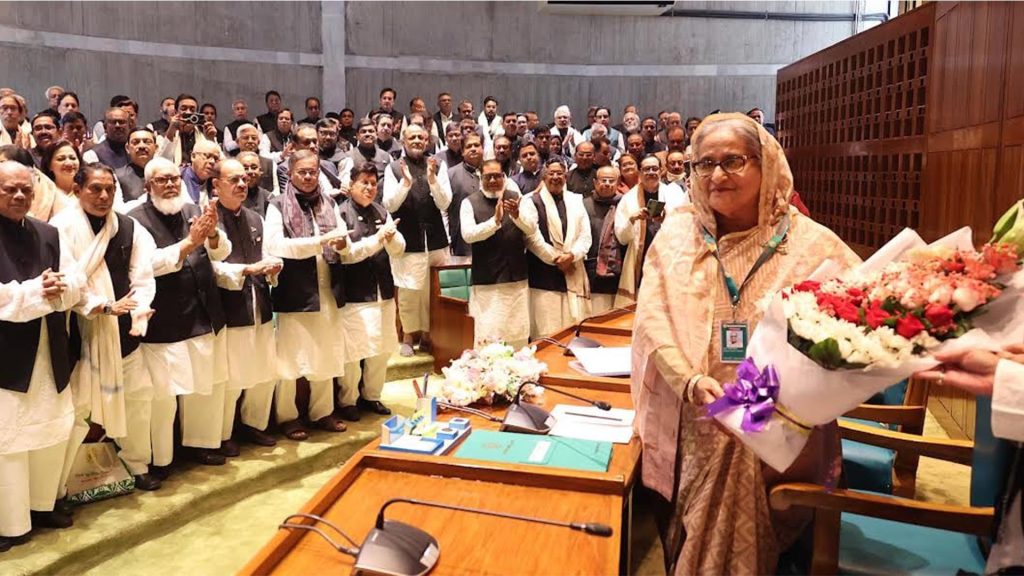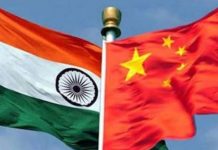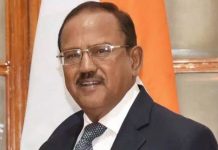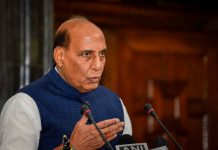A poor turnout (42%) took the sheen off the Awami League’s landslide win in parliamentary poll to 350-member Jatiya Sansad amid poll boycott by the main opposition party, BNP. BNP leaders claimed that low turnout indicated the people’s rejection of poll process, writes Nava Thakuria

When Bangladesh embraced the 12th general election amidst violence and boycott call from the prime opposition Bangladesh Nationalist Party (BNP), it was predicted that the ruling Awami League (AL) led by Prime Minister Sheikh Hasina was winning for the fourth consecutive time to lead the poverty stricken south Asian nation for another five years.
Accordingly, the national polls on Sunday (a working day for the Muslim majority country) gave an absolute majority to the incumbent AL with 222 seats in Jatiya Sansad, the highest legislative body of the populous country strategically located between India and Myanmar.
The parliamentary election to 350-member Jatiya Sansad (where 50 women members are elected indirectly) reflecting a poor voters’ turnout (less than 42% of 120 million registered electorates exercised their franchise) witnessed the electoral victory of 62 independent candidates (many even defeated AL nominees), a record since its birth as a nation in 1971. A compromised opposition Jatiya Party won only 11 seats and three smaller parties emerged winning one constituency
each.
The polling began at 8 am on 7 January 2014 and continued uninterrupted till 4 pm under high security arrangements as the 170 million nation often reports widespread poll-related violence. Over
750,000 police and paramilitary forces were deployed on the ground, where Bangladesh Army, Navy, and Air Force personnel were on duty to ensure security during the single day polling in 261,912 booths under 42,024 voting centres across the country.
To motivate the electorate, even PM Hasina cast her vote as the first individual in Dhaka City College polling station. She was accompanied by her sister Sheikh Rehana and daughter Saima Wazed. More than 200 foreign observers representing over 30 countries and global organisations visited the country to monitor the electoral process. Three senior members of the Election Commission of India also joined the group. Over 20,000 Bangladeshi observers representing 84 organizations were also engaged in the process.
Sporadic incidents of violence and rigging of polls were reported, as BNP leaders called for a 48-hour Hartal (general strike) beginning the previous day to polls. Alleging that elections under Hasina’s
government would never be free and fair, the BNP and its political allies stick to their demand to conduct the polls under a caretaker neutral government in Dhaka, which Hasina strongly denied.
Jamaat-e-Islami, a radical political party of Bangladesh, even took out processions in the capital city on the polling day supporting the BNP’s boycott call.
Meanwhile, the UN rights chief expressed serious concern over the violence and repression reported during the electoral exercise in Bangladesh. Violations and irregularities during the campaign and on
election-day should be thoroughly investigated, asserted the global rights chief, adding that the hard earned democracy in the country should not become cosmetic. The United States stated that the
Bangladesh elections were neither free nor fair. Moreover, not all political parties were engaged with the electoral exercise, said a government representative, adding that Dhaka should investigate
reports of violence and make the perpetrators accountable.
Terming the 12th national election as a fake one, the BNP leaders claimed that such a low turnout in the polling indicated the people’s rejection following their boycott call. Alleging the Hasina government of running fabricated cases against 5,00,000 BNP leaders and even imprisoning over 1,700 party workers in the last 15 years, they asserted that the Bangladeshi voters thoroughly rejected the one-sided election. Now the BNP leaders have decided to intensify their movement against the fake regime with a series of peaceful public demonstrations across the country.
BNP’s president Khaleda Zia (78 years old) is currently ailing and amazingly the former Bangla Premier is also under house arrest for graft charges. Even the party’s acting president Tarique Rahman, son of former Bangla President Ziaur Rahman and Begum Zia, has been living
in self-imposed exile since 2008. Tarique faced 18 months jail term before leaving to London and staying there till date. So the party remains almost a leaderless entity on the ground and the BNP leaders were assumed not interested in contesting the elections.
Speaking to this writer from Dhaka, a Bengali political observer pointed out that the 7 January election was fought by AL leaders and well wishers only, as most of the independent candidates are either deprived political activists or just a dummy. Observer Tapan Malik also claimed that those independent candidates were encouraged to join the fray to increase the number and hence the election cannot be assumed as free and fair. The Jaitya Party candidates also won the polls with favours from the AL. Thus Bangladesh is emerging as a one-party nation and now the question that arises is who would play the role of an opposition in the parliament, stated Malik.
The Paris-based global media rights body Reporters Sans/Without Borders (RSF) also condemned the violence against the journalists during the Bangla polls, when at least 12 reporters were attacked and expelled or denied entry to voting stations, in most cases by supporters of Hasina’s party. The AL supporters attacked reporters covering the cases of electoral fraud, asserted the RSF, adding that
the relevant authorities should launch independent probes so that the responsible individuals can be brought to justice.
“Furthermore, in a context of stifled media freedom, muzzled by governmental suppression of all criticism, we urge the newly re-elected authorities to finally adopt strong measures to safeguard
unrestricted Internet access and protect the freedom of the press enshrined in Bangladesh’s constitution and freedom of expression, which is being obstructed by the draconian new cyber security act. The government’s toxic control over news and information must end,”
asserted the statement.
On a polling day marked by tension – with the main opposition party (BNP) boycotting the polls- many journalists were physically attacked or were subjected to harassment and intimidation, and were either expelled from or denied entry to voting stations. Most of the harassment and violence was alleged to be the work of ruling AL supporters targeting reporters trying to cover irregularities. In another serious violation of the right to report, access to the website of a Bengali newspaper was blocked. The newspaper management claimed that it had no internal technical issues when it experienced the access problems in the alternate media space on 6 January.
“The Bangladeshi authorities also refused to issue visas to journalists from the headquarters of many leading international media outlets, including BBC News, New York Times, Bloomberg, Agence
France-Presse, Reuters and Al Jazeera. Most of the foreign reporters who managed to obtain visas were those based in New Delhi. Some foreign reporters were also asked to sign a statement accepting that their photographs and video footage would have to be approved by the Bangla authorities before being sent, and could not harm the national image,” pointed out the statement.
Hasina (76) had earlier won the three national elections continuously from 2008 to establish herself as the longest-serving government head among women in the world. Daughter of Bangabondhu Sheikh Mujibur Rahman, Hasina maintained that only her party can lead Bangladesh towards peace, prosperity and growth. In the election manifesto, Hasina promised to convert the digital Bangladesh to a smart nation. She also committed to protect and promote the spirit of democracy, offer quality education to youths, modernise agriculture, and make healthcare services affordable to all Bangladeshi nationals.
Indian high commissioner in Dhaka, Pranay Verma was the first foreign diplomat to call on Hasina at Ganabhawan to convey greetings after her re-election and victory to her party. Ambassadors representing China, Russia, Bhutan, Philippines, Singapore, Sri Lanka etc also followed
and assured cooperation from their governments. Prime Minister Narendra Modi also congratulated Hasina on her poll victory and pledged a mutually trusted relationship with Dhaka. Hasina reciprocated the goodwill from New Delhi.
Traditionally, New Delhi remains sympathetic to Hasina as she maintains a comfortable relationship with India. Her strong actions against the north-eastern militants (taking shelter in
Bangladesh) as well as various initiatives to enhance bilateral economic ties haave already been appreciated by the billion-plus nation. Now it’s logically expected that Hasina will effectively
safeguard the interest of religious minorities (Buddhist, Christian besides Hindus) in the land of Bengalis, as she is considered as pro-Indian in nature compared to her rival Begum Zia.













